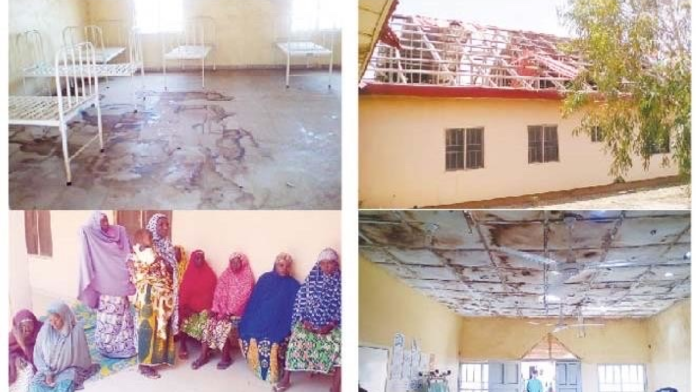The Independent Corrupt Practices and Other Related Offences Commission (ICPC) has pledged to investigate the alleged disappearance of 13,350 diapers meant for antenatal care at a Primary Health Centre in Sambawa community, Kebbi.
The commission stated it would uncover the criminal conduct and hold the culprits accountable.
Dr. Musa Adamu, Chairman of the ICPC, made this announcement during a one-day conference organized by the ICPC in Abuja on Thursday.
According to reports that the conference, themed “Engendering Corruption-Free Primary Health Care Delivery For All,” addressed corruption in healthcare.
“Recently, the Sambawa community in Kebbi State sent a petition to us regarding missing antenatal care items for pregnant women and newborn babies donated to a healthcare facility,” Adamu said. “Our preliminary investigation indicated that the missing diapers allocated to Sambawa Primary Healthcare Centre are 13,350 pieces, while the investigation by Kebbi State Primary Healthcare Agency puts it at 3,466.”
Adamu added that two staff members of the Sambawa Primary Healthcare Centre, a male and a female, were implicated in the case. However, the commission intends to fully investigate the criminal conduct and bring those responsible to justice.
He also highlighted the increasing involvement of communities and civil society organizations in combating corruption within the health sector.
The chairman explained that the commission is implementing measures to ensure corruption-free primary healthcare delivery across the country.
“This conference is part of our efforts to garner public support in fighting corruption in the nation,” he said. “It aims to stimulate discussions that will improve service delivery devoid of corrupt practices in the health sector.”
Adamu noted that the conference’s focus on Primary Health Care in the Federal Capital Territory (FCT) serves as a pilot for a nationwide initiative that could be replicated across the six geopolitical zones of the federation.
The conference also featured the signing of Memoranda of Understanding (MoU) aimed at fostering anti-corruption collaboration and utilizing available resources to address issues hindering a corruption-free healthcare system in Nigeria.
Health Minister Muhammed Ali Pate emphasized the multifaceted challenges, including corruption, facing the nation’s Primary Health Care (PHC) system.
“Corruption in the health sector cannot be isolated from other sectors,” Pate said. “Nigeria has a prosperous future, but prosperity will only come if citizens collectively do the right things.”
Dr. Chris Isiguzo, National President of the Nigeria Union of Journalists (NUJ), underscored the critical role of Primary Health Care as the foundation of the nation’s health system.
“Corruption in primary health care delivery diverts essential resources, erodes trust in public institutions, compromises care quality, and disproportionately affects the most vulnerable,” Isiguzo said. “Tackling this issue is a moral imperative.”
Representatives from the Nigerian Medical Association (NMA), National Commission for Persons with Disabilities (NCPWD), United Nations Development Office on Drugs and Crime (UNODC), World Health Organization (WHO), National Primary Health Care Development Agency (NPHCDA), National Health Insurance Authority (NHIA), and National Association of Nigeria Nurses and Midwives (NANNM) also attended the conference.



